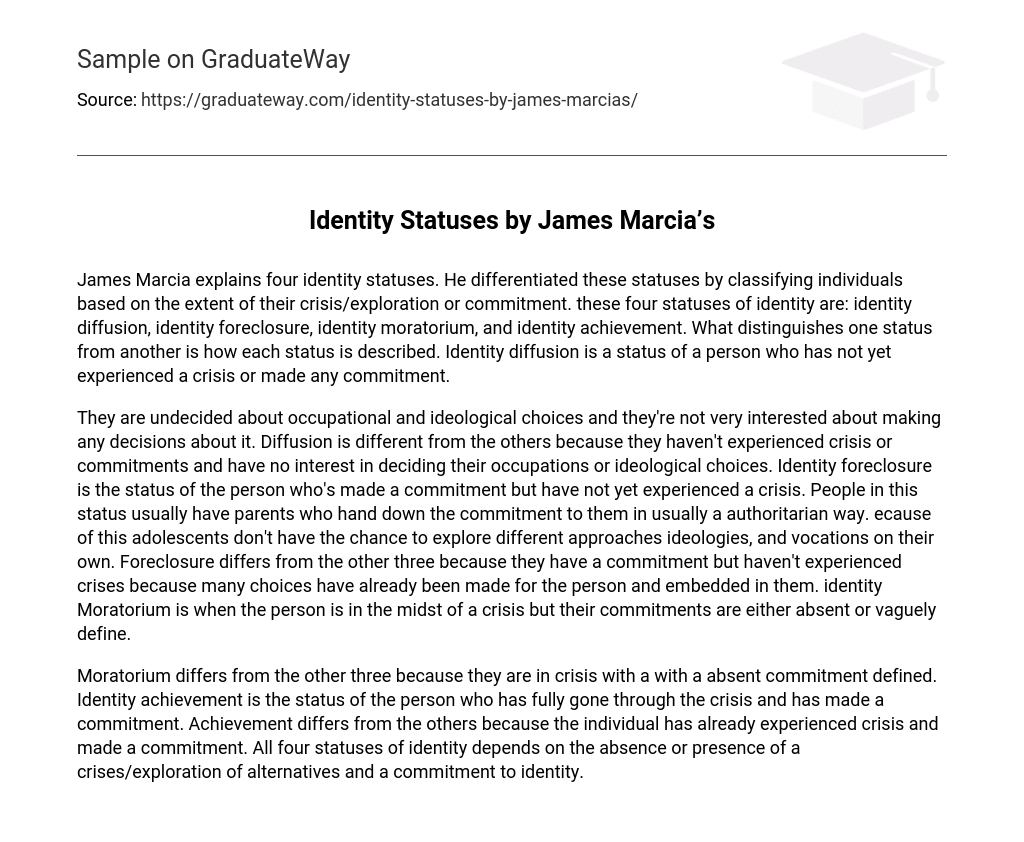In his work, James Marcia presents four identity statuses which involve differentiating individuals based on their level of crisis/exploration or commitment. These four identity statuses are known as identity diffusion, identity foreclosure, identity moratorium, and identity achievement. The distinction between these statuses lies in the way each status is characterized. Identity diffusion refers to a person who has not yet encountered a crisis or made any commitments.
They are undecided about their occupational and ideological choices and lack interest in making any decisions about them. Diffusion differs from the other statuses because individuals in this category have not yet experienced a crisis or made any commitments, and they have no desire to decide on their careers or ideological preferences. Identity foreclosure refers to individuals who have made commitments without experiencing a crisis. Typically, these individuals have had their commitments imposed upon them by authoritarian parents, limiting their exploration of alternative ideologies and vocations. Foreclosure sets itself apart from the other three statuses as it involves having a commitment without having experienced crises, often due to choices made for the individual and deeply ingrained within them. Identity moratorium characterizes individuals who are currently facing a crisis but lack clear commitments.
The status of moratorium is distinct from the other three statuses in that it lacks a defined commitment and is currently in crisis. In contrast, identity achievement is the status achieved by individuals who have successfully navigated the crisis and made a commitment. This status is different from the others as it involves both experiencing a crisis and making a commitment. Ultimately, all four identity statuses are determined by the presence or absence of crisis/exploration and a commitment to identity.





